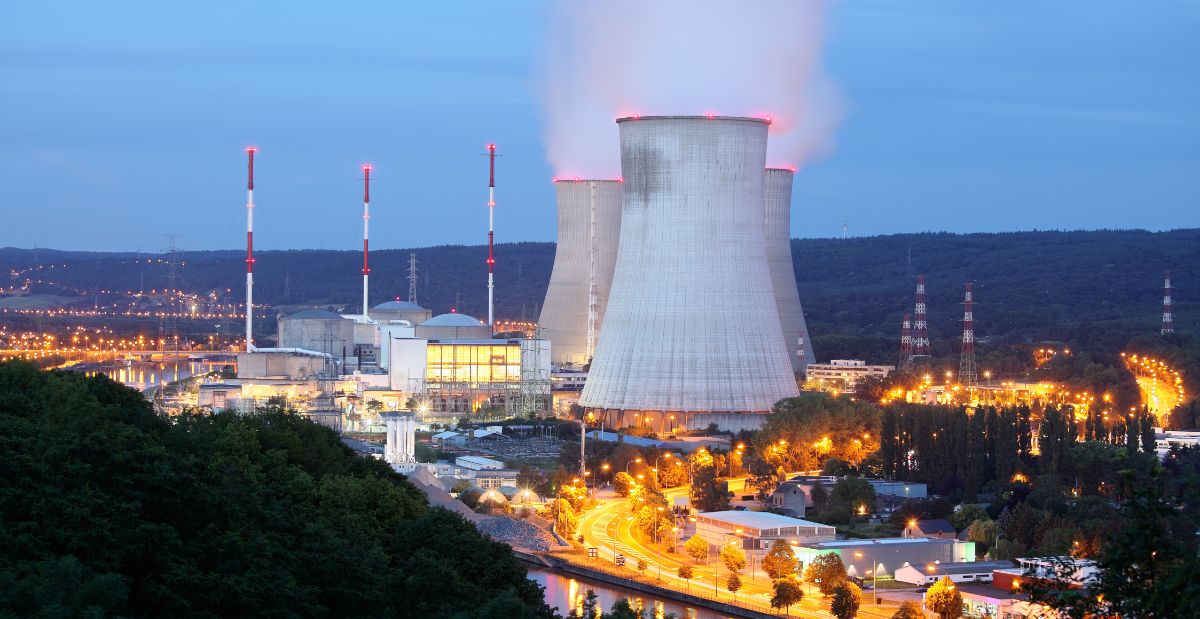
LADICIM collaborates in the Freedom project to improve the safety of nuclear power plants
The research, coordinated by CIEMAT, delves into the use of mini-CT specimens and Artificial Intelligence to characterize the integrity of the reactor pressure vessel in the face of the materials aging challenge Extending the useful life of nuclear power plants is not only a matter of energy strategy; it is,

LADICIM aims to fortify floating wind with more durable, safer and more sustainable platforms
In a consortium with SEAPLACE, IHCantabria, and UPM, the Cantabrian laboratory will lead the development of green and self-healing concretes to optimize the CROWN floating platform Europe’s race for energy decarbonization has ceased to be a promise and has become an industrial and technological necessity. With the goal of installing
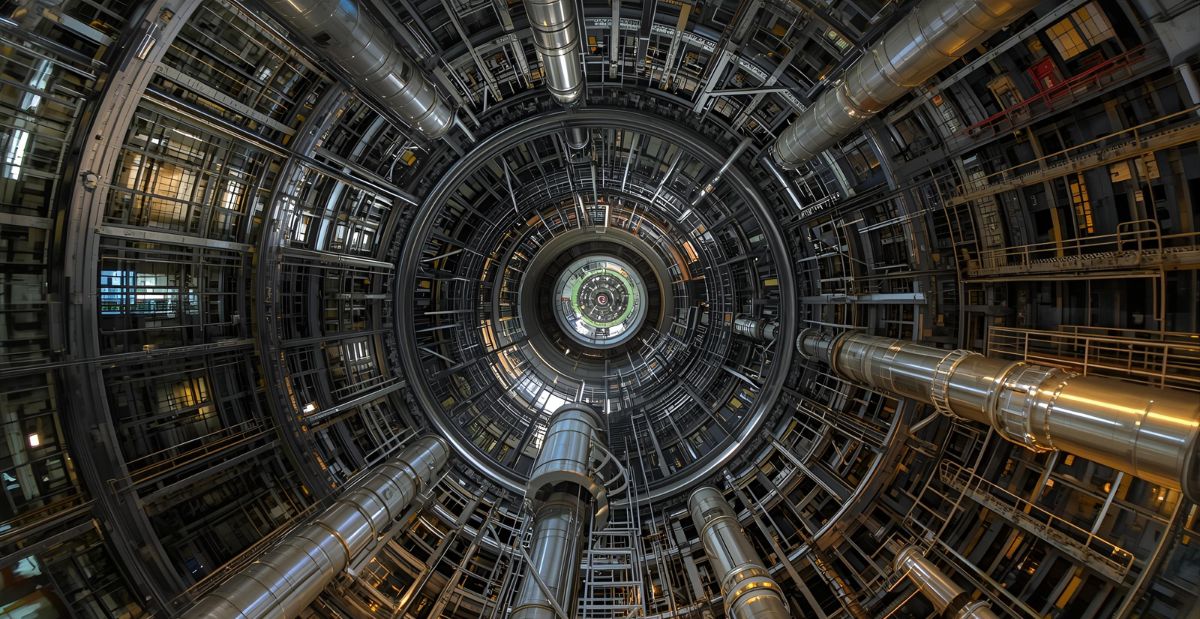
LADICIM participates in European project that applies AI to extend the life of nuclear power plants
ENTENTE, coordinated by CIEMAT, lays the groundwork for Materials Informatics to more accurately predict reactor vessel degradation and enhance the safety of its long-term operation In a world marked by the challenge of climate change and the need for low-carbon energy sources, nuclear power generation can play a fundamental role.

LADICIM consolidates progress of the INTELEST project in AI for sustainable energy and transportation
The University of Cantabria Laboratory advances in the development of predictive models for nuclear safety, offshore wind power, and the maintenance of high-performance railway infrastructure, transferring high-impact knowledge to the Cantabrian industry Artificial Intelligence (AI) stands as an effective and substantial tool to face the technological challenge posed by the
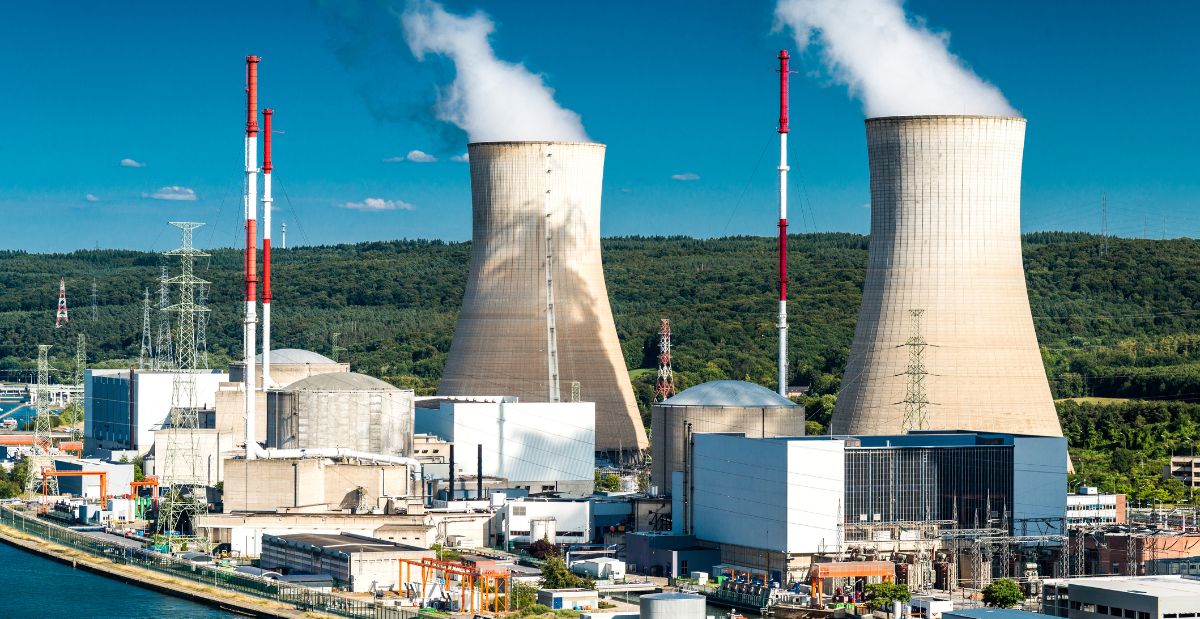
The University of Cantabria awards LADICIM its proposal for sustainable concrete for the nuclear industry
The GreenCosmos project, recognized in the UC Solutions 2025 call, proposes an innovative solution for the energy infrastructure of the future, combining security and a circular economy In a global landscape increasingly focused on safe and sustainable energy, the development of advanced materials for the next-generation nuclear industry is paramount.
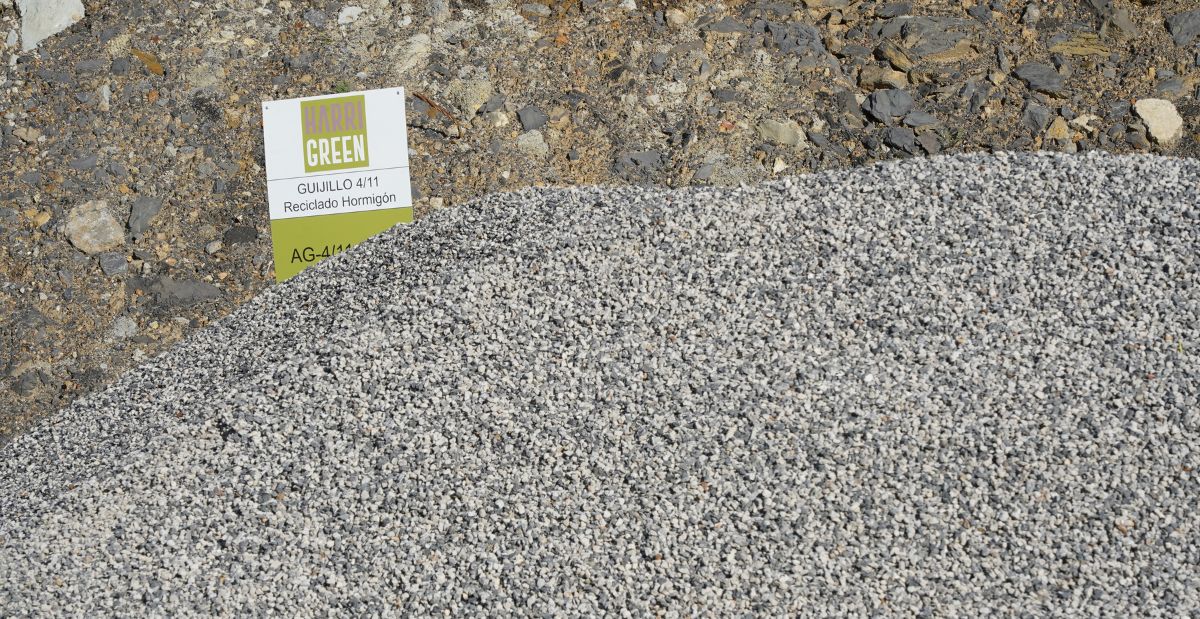
LADICIM and Viuda de Sainz strengthen their collaboration for the development of recycled concrete
The Laboratory and the construction company are working together to consolidate the use of recycled aggregates in civil engineering, in line with European regulatory requirements and the challenge of reducing the sector’s environmental footprint The Laboratory of the Division of Materials Science and Engineering (LADICIM) of the University of Cantabria
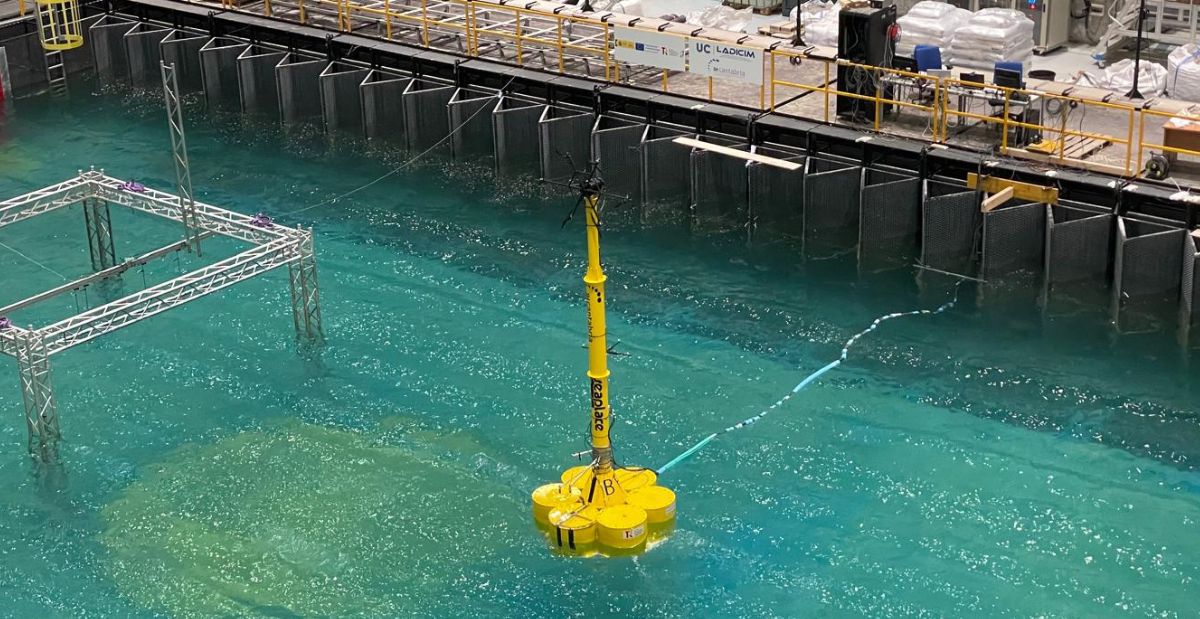
LADICIM is participating in the development of a new generation of floating concrete platforms for offshore wind energy
The ISOBARA project, in collaboration with SEAPLACE and IHCantabria, designs industrializable solutions to reduce costs in floating wind farms The energy transition toward a low-carbon economy is driving significant development in offshore wind energy. Europe, a pioneer in this field, has set very ambitious goals: to cover at least 30%
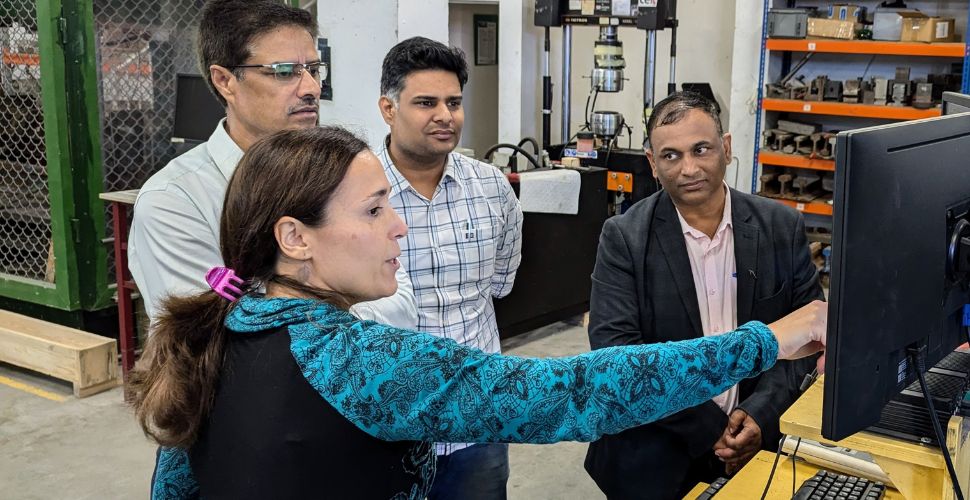
LADICIM Participates in the Development of Metropolitan Transport in India
The Laboratory of the Division of Materials Science and Engineering has renewed its collaboration agreement with Patil Rail, one of India’s leading companies specializing in the manufacturing of railway components. The Laboratory of the Division of Materials Science and Engineering (LADICIM) at the University of Cantabria has strengthened its international
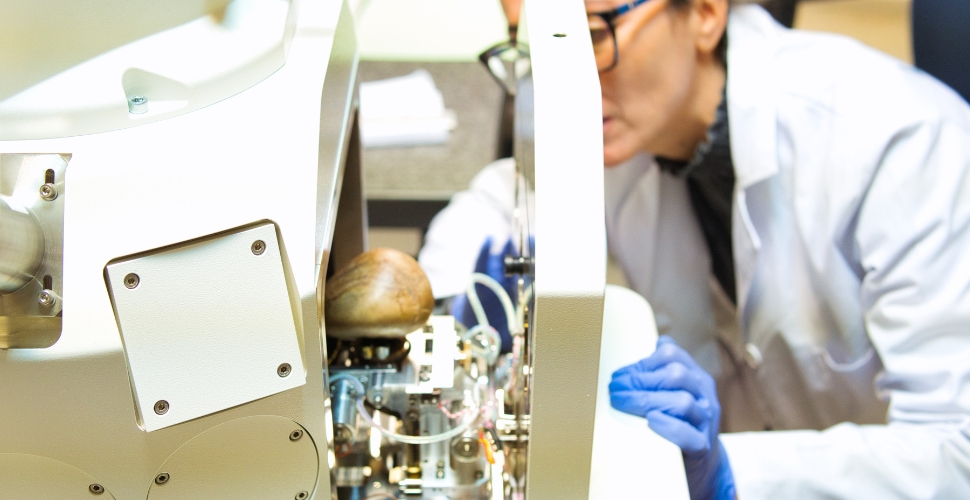
LADICIM Applies Materials Science to the Study of Archaeological Heritage
The Archaeometry and Heritage Unit has been collaborating for over 30 years with archaeologists and researchers to analyze historical artifacts using advanced non-destructive techniques. Archaeology has found an essential ally in materials science for understanding the past. Beyond excavations, the application of advanced technologies reveals key information hidden within ancient
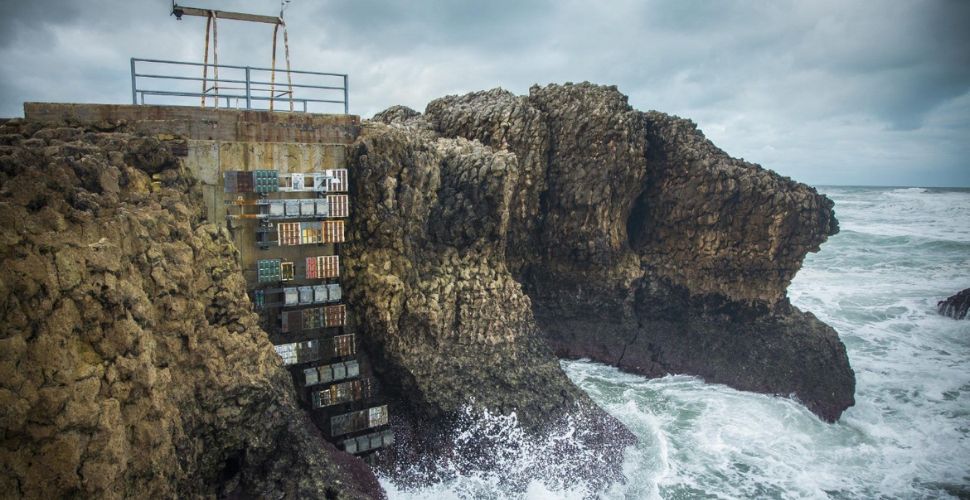
LADICIM leads the concrete durability testing in the Isobara project
The research, which also involves IHCantabria and Seaplace, aims to standardize a concrete floating platform for offshore wind energy. The Isobara project, which aims to standardize a concrete floating platform for offshore wind energy, has entered a crucial phase of durability testing. In this stage, the Laboratory of Materials Science

LADICIM collaborates on the guide to implement the European standards for recycled concrete in structures in Spain
The goal is to provide precise recommendations to optimize the design and execution of structures using recycled concrete, contributing to the transition toward more environmentally friendly construction. The Laboratory of the Division of Materials Science and Engineering at the University of Cantabria (LADICIM) has been selected by the International Federation

LADICIM and IFCA use AI to automate graphite classification in iron foundries
Using convolutional neural networks, the new system identifies graphite morphology with high precision, overcoming the limitations of manual analysis and enabling more rigorous and efficient quality control. The proper classification of graphite in iron foundries is essential to ensure that metal parts meet the high quality standards required by strategic
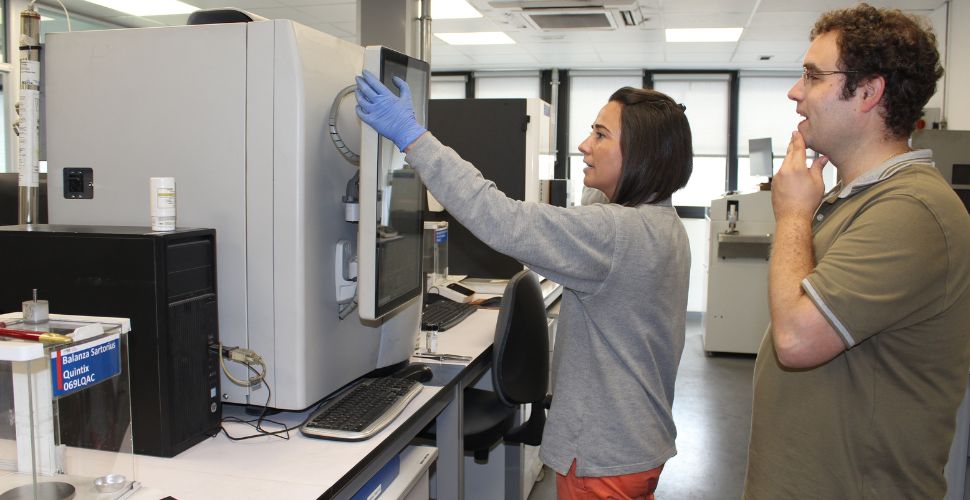
LADICIM and GSW Join Forces to Optimize Steel Quality Through Residual Hydrogen Control
The H2ALAM project investigates how to improve the strength and durability of this material by regulating the levels of the chemical element during its manufacturing process. The Laboratory of the Division of Materials Science and Engineering at the University of Cantabria (LADICIM) and Global Steel Wire (GSW) are jointly developing

LADICIM Participates in Fractesus, the European Project Aiming to Enhance Nuclear Power Plant Safety
The results obtained validate the effectiveness of miniature compact specimens for evaluating the fracture resistance of nuclear reactor pressure vessels, improving both the quantity and quality of information gathered from irradiated steel samples. We live surrounded by critical infrastructures that underpin modern life, all of which require a high degree
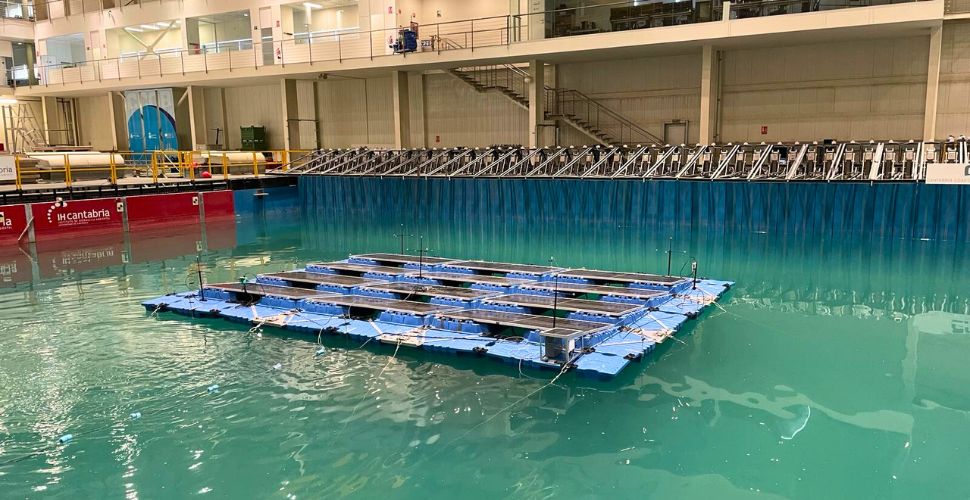
LADICIM Collaborates with Isigenere and IHCantabria to Drive New Designs and Incorporate Advanced Materials in Floating Solar Structures
The ‘SolEtAqua’ project, which also involves the University of Jaén, aims to develop new methodologies to predict the dynamic behavior of floating photovoltaic plants and make them more efficient and sustainable. Conventional land-based photovoltaic systems, although widely used, have several limitations. They require large land areas and are subject to
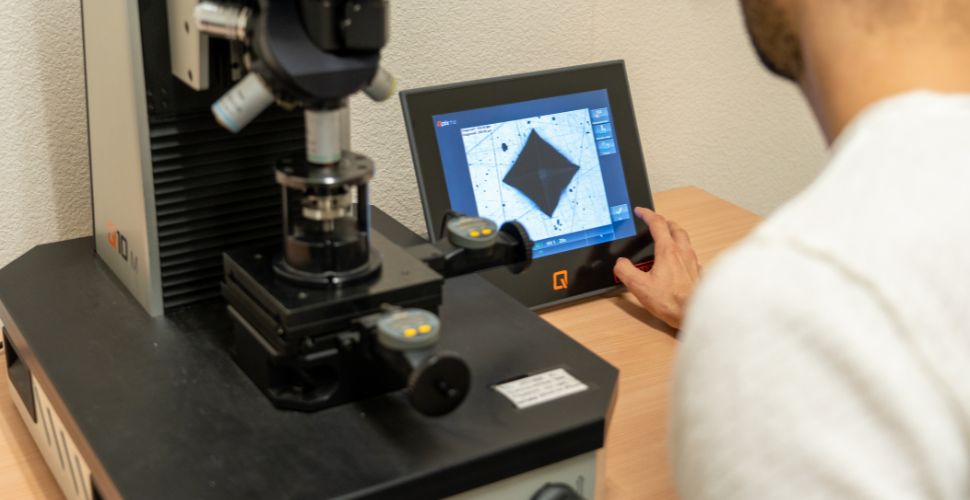
LADICIM Leads the Cantabrian Project Applying AI to Reduce Emissions in Industry, Energy, and Transport
The INTELEST project, funded by the Government of Cantabria with European funds, involves the collaboration of companies such as GSW and Rocacero, research centers like IHCantabria, and industry organizations such as MAFEX. Climate change, driven by the increase in greenhouse gases due to human activity, is causing global warming, climate

The Director of LADICIM Delivers a Seminar on Mechanical Characterization of Biological Tissues
Professor José Antonio Casado presented the latest research developments—conducted in collaboration with the Marqués de Valdecilla University Hospital—at the Master’s Degree in Structural Integrity program. José Antonio Casado del Prado, professor at the University of Cantabria and director of the Laboratory of the Division of Materials Science and Engineering (LADICIM),
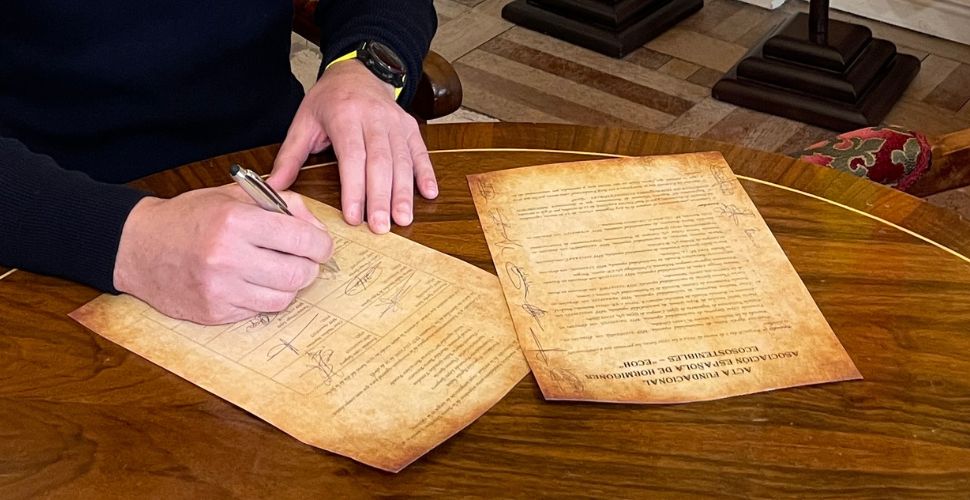
LADICIM Participates in the Creation of the Spanish Association for Eco-Sustainable Concretes
The organization brings together specialized researchers from the CSIC and the universities of Cantabria, A Coruña, Extremadura, Granada, Córdoba, Oviedo, Burgos, and the polytechnic universities of Catalonia and Valencia. The Laboratory of the Division of Materials Science and Engineering (LADICIM) will represent the University of Cantabria in the newly established
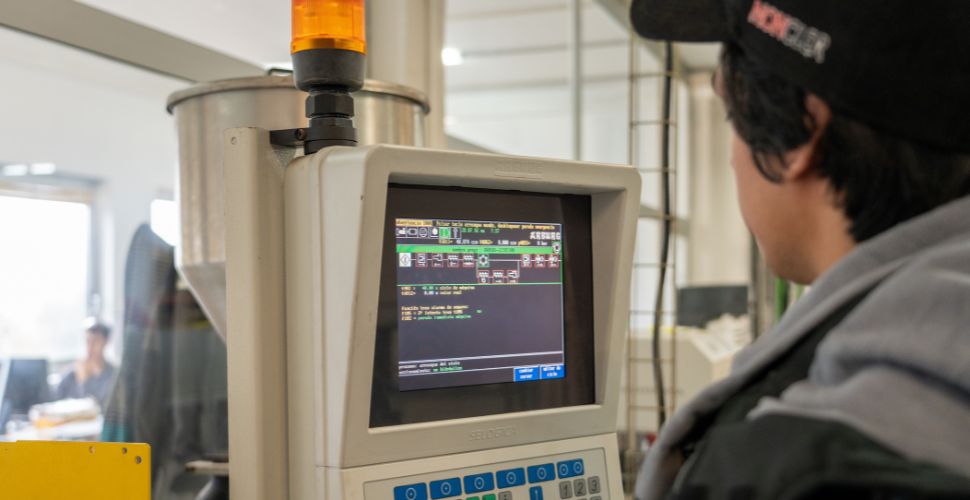
LADICIM Collaborates with CTC on the Smart Specialization of Industrial Processes in Cantabria
The Laboratory of the Division of Materials Science and Engineering at the University of Cantabria is participating in the research line of the FUTCAN project focused on the use of Artificial Intelligence to virtualize industrial prototyping processes. The Laboratory of the Division of Materials Science and Engineering (LADICIM) at the
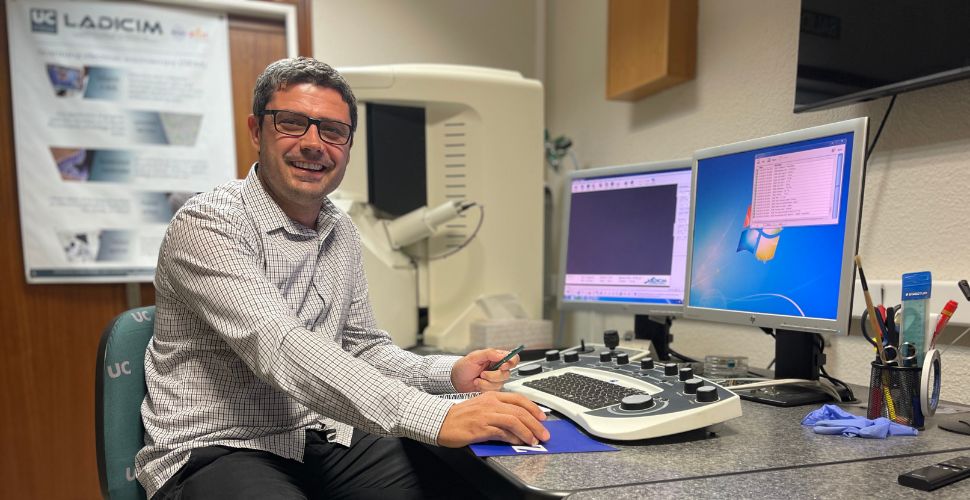
LADICIM Welcomes Brazilian Researcher Túlio Panzera to Develop a Bio-Based Sandwich Panel Project
The Carolina Foundation, through its international research collaboration scholarship program, has facilitated the appointment of the professor from the Federal University of São João del-Rei. The Laboratory of the Division of Materials Science and Engineering at the University of Cantabria has welcomed Brazilian researcher Túlio Hallak Panzera to lead a
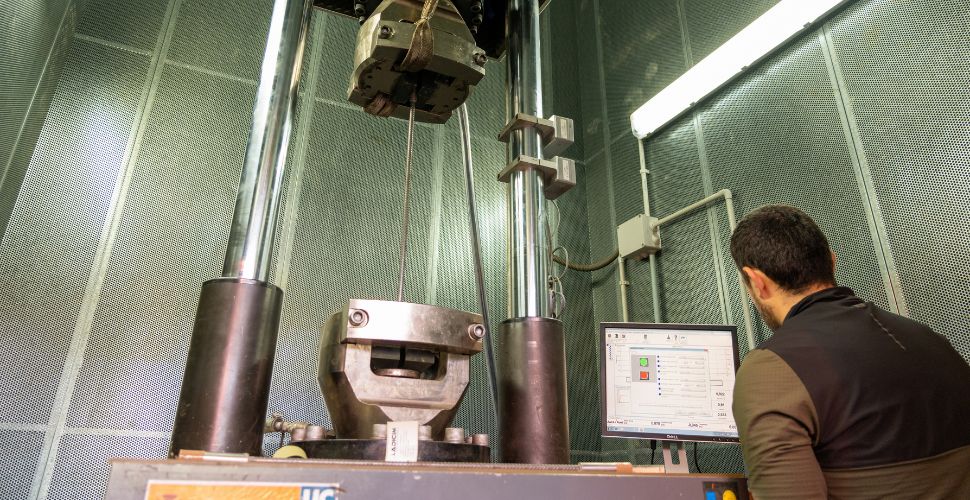
LADICIM and GSW Patent a Clamping System to Prevent Specimen Breakage in Tensile Tests of Metallic Materials
The Laboratory of the University of Cantabria and the company specialized in wire rod production have designed a jaw adapter that significantly reduces the pressures experienced by these devices during this type of quality control tensile testing. Researchers at LADICIM, in collaboration with engineers from Global Steel Wire (GSW), have
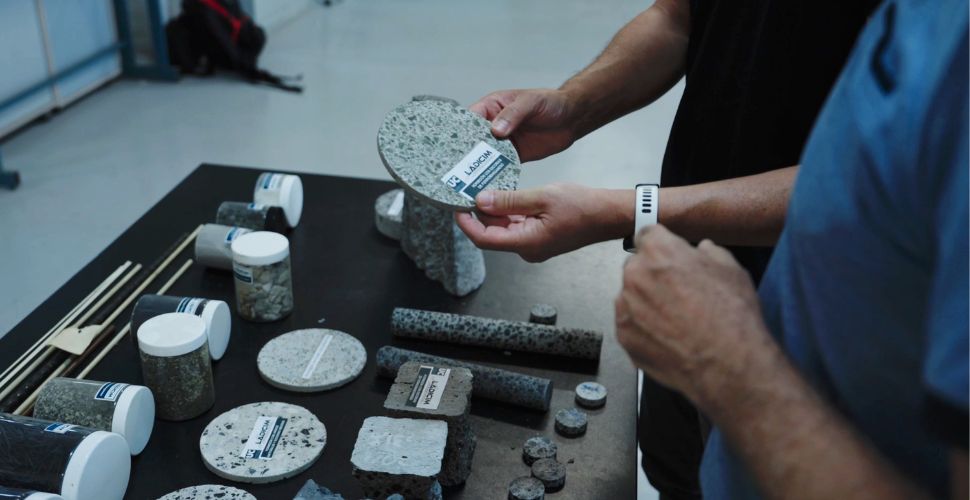
LADICIM Researches the Development of High-Durability Recycled Concrete for Marine Environments
ChatGPT Plus The SEACOND project proposes the analysis of sustainable innovations such as the use of recycled aggregates, seawater, and non-metallic reinforcements to reduce environmental impact and extend the service life of marine structures. Marine structures play a crucial role in numerous economic activities but also present significant environmental
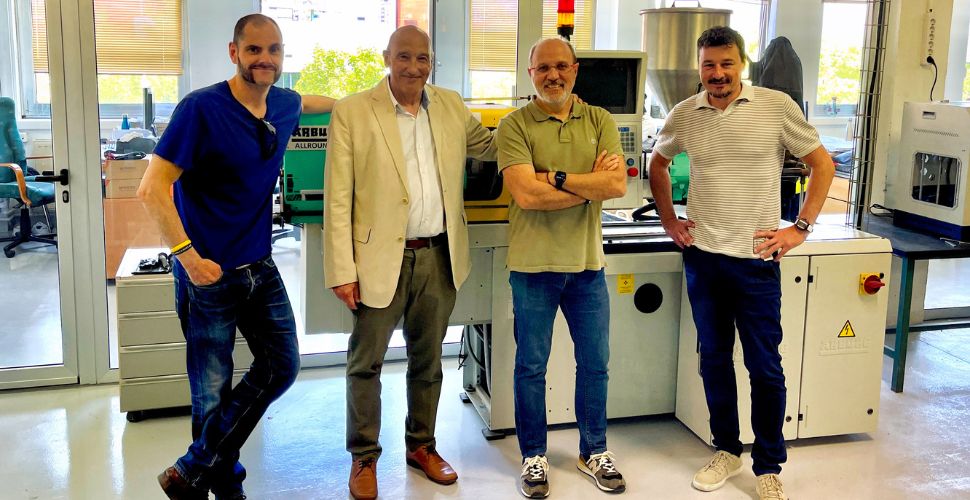
The University of Cantabria Promotes Four Leading Researchers from LADICIM
The Laboratory celebrates the appointments of José Antonio Casado, Diego Ferreño, Federico Gutiérrez-Solana, and Carlos Thomas, as well as the permanent hiring of young talents. The University of Cantabria (UC) has promoted several professors conducting their research activities at the Laboratory of the Division of Materials Science and Engineering (LADICIM)
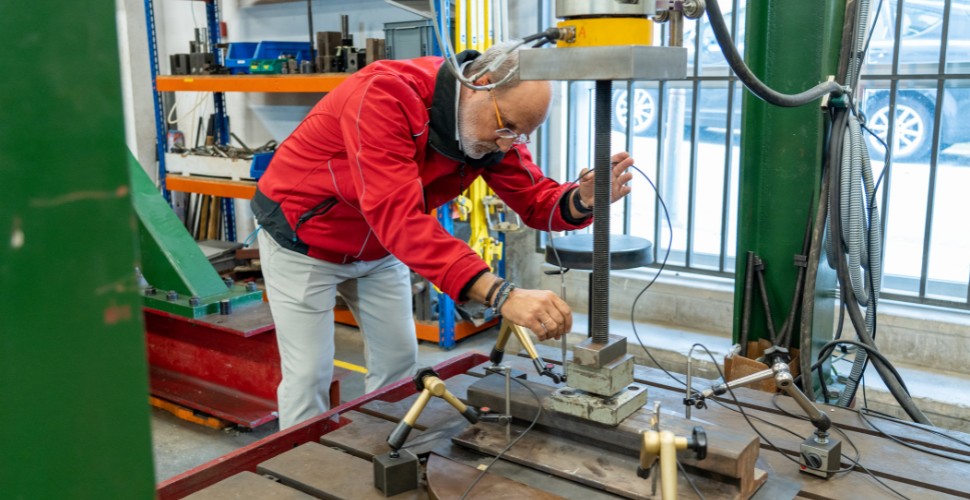
LADICIM and Acciona Develop a Solution to Reduce Train Noise and Vibration Emissions Using Recycled Tires
The results of the industrial PhD thesis have been recognized with an award in the first call of the Innovation Chair Project at the University of Cantabria. One of the main challenges faced by high-speed rail lines, conventional railways, and metro systems is the transmission of vibrations caused by passing
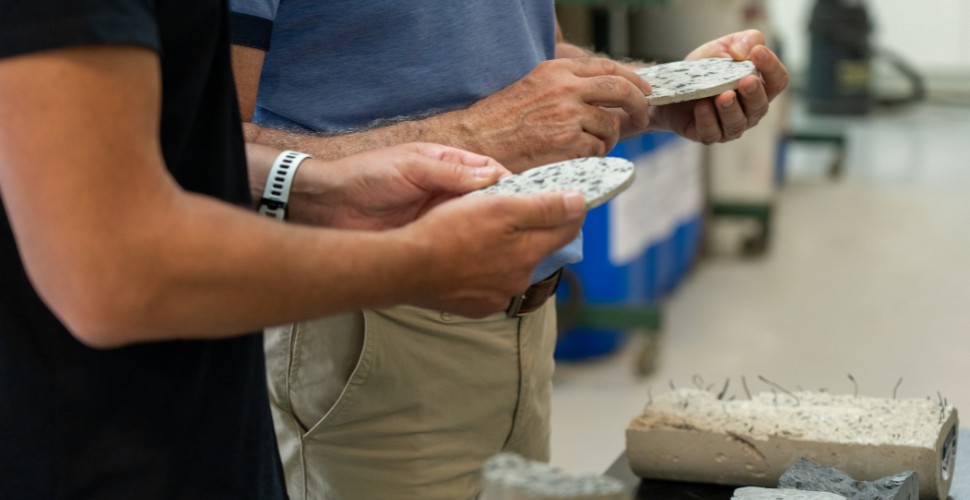
LADICIM Renews Its Accreditations in the Fields of Railway Superstructure and Metallic Materials
The Laboratory of the Division of Materials Science and Engineering at the University of Cantabria has successfully passed audits by the Spanish National Accreditation Body (ENAC) for 25 consecutive years. Since 1998, LADICIM has not only renewed its accreditations year after year but has also earned new distinctions that have
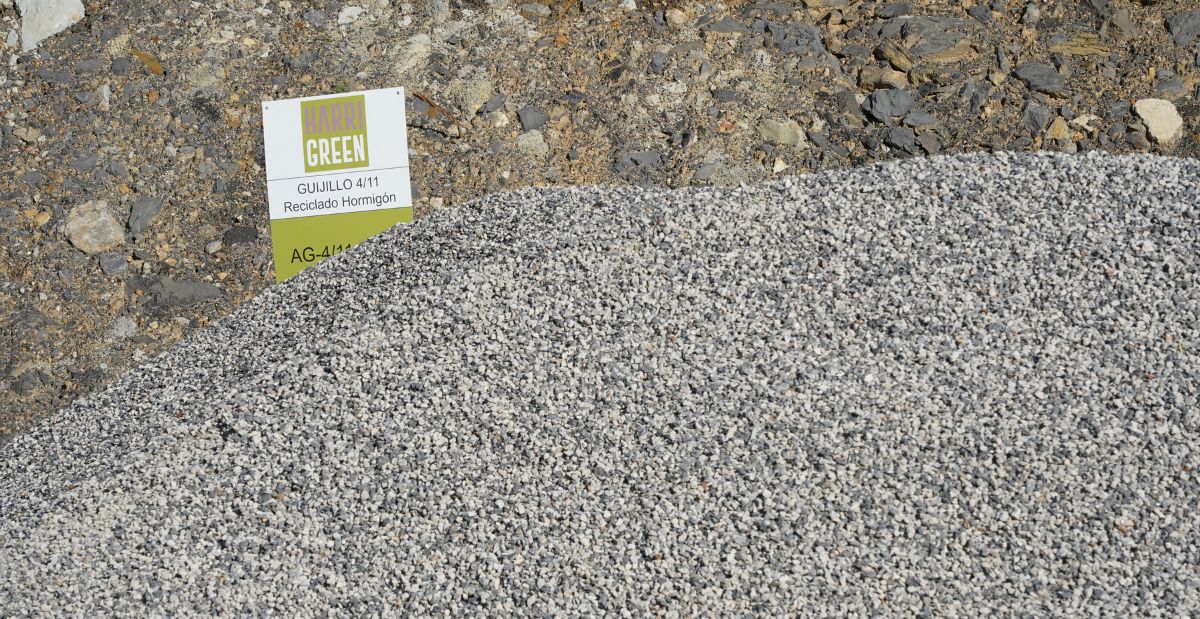
LADICIM and Viuda de Sainz strengthen their collaboration for the development of recycled concrete
A prestigious U.S. engineering firm has commissioned the Cantabrian laboratory to carry out a study aimed at generating a global database to enhance understanding of the evolution of nuclear reactor vessels. The Laboratory of the Division of Materials Science and Engineering is promoting a line of research related to the
